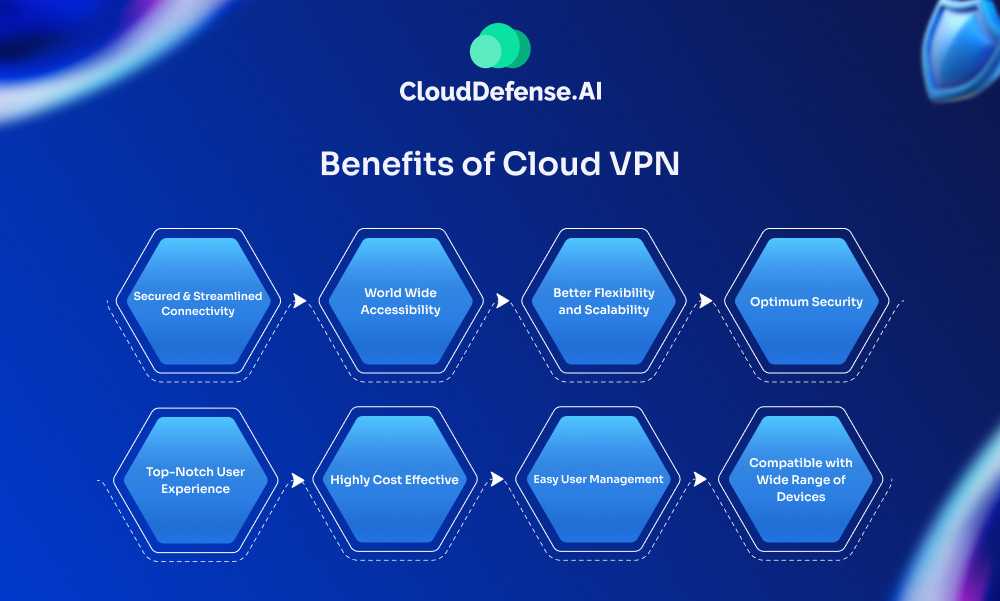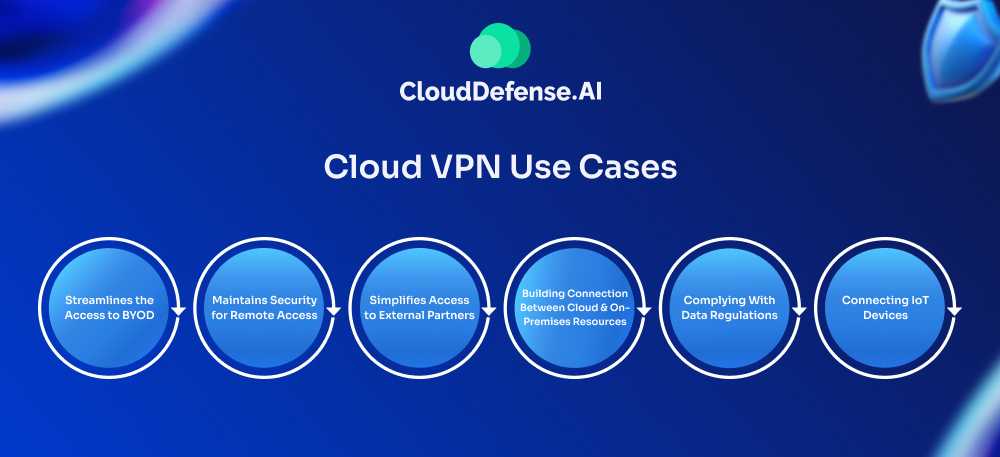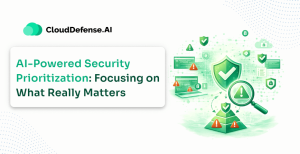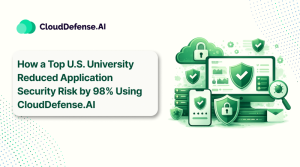What is a Cloud VPN?
A cloud VPN is an IT network solution that provides an encrypted and secured connection to enable remote users to connect to the organization’s resources in the cloud. It creates a private network over the Internet and allows employees to access the necessary files, applications, and data, regardless of their physical location.
It makes sure all the secured data that is transferred across public networks is protected from any kind of manipulation and unauthorized access. Cloud VPN is based on the same principle as traditional VPN but it provides a better secured connection that can be deployed globally.
It is quite easy to manage through a VPN solution provider, providing an effective and affordable network service to all businesses. It is beneficial for organizations that have a lot of mobile workforce or follow a work-from-home culture. A cloud VPN is composed of a VPN gateway, VPN clients, and a control panel:
- VPN Gateway: The VPN gateway is responsible for securing the connection between cloud VPN clients and the organization’s network or application.
- Control Panel: The control panel forms a vital component of cloud VPN as it acts as an interface through which the administrator can manage the cloud VPN. From performing maintenance and configuration to monitoring, everything is done through the control panel.
- VPN Clients: VPN clients are the applications that run on the remote user’s device and enable them to securely connect to the private network.
How Does a Cloud VPN Work?
Just like a standard VPN, a cloud VPN creates an encrypted connection between the client and the organization’s network over the internet. Cloud VPN basically works as a VPN as a service where the VPN gateway encrypts and decrypts the transmitted data passing through the tunnel.
When a user requests to connect to a VPN service through dedicated software, it first assesses the authentication of the user and device. Usually, the authentication process is done through username & password or multifactor authentication.
After the user and device is authenticated, the cloud VPN service creates a secure connection. Specialized VPN protocols like SSL/TLS or IPsec are utilized to ensure an encrypted private network over the internet. This not only prevents any eavesdropping and unauthorized entry into the secured tunnel but also keeps the transmitted data unreadable.
Since the data travels over the public network, VPN gateways are responsible for encrypting the outgoing data. Similarly, it decrypts the incoming data for the receiving network or device.
The encryption and decryption process is crucial for cloud VPN as it protects the data during transmission over the internet. No matter the network changes made by remote clients, the cloud VPN maintains the encryption of the private tunnel throughout.
Modern cloud VPN also incorporates network segmentation along with standard SSL/TLS protocol. It makes sure the remote user can only access specific resources that they are authorized or need to use to perform their work. Nowadays, many cloud VPN services also integrate threat prevention that prevents the data from malware and other cyberthreats.
Benefits of Cloud VPN

When an organization starts using cloud VPN, it benefits from it in many ways. Besides enabling remote workers to securely access the data and application, it makes overall cloud architecture more flexible and scalable. Here are some benefits you will get with cloud VPN:
Secured and Streamlined Connectivity
The primary benefit of a cloud VPN is that it creates direct and encrypted access for remote users to the cloud resources. Unlike traditional VPN, it enables users to immediately access all the resources without any latency and perform their work with high productivity. While it maintains efficiency in the connection, it also makes sure all the data remains protected.
World Wide Accessibility
With a cloud VPN, your employees can connect to the organization’s network, data, or application from any part of the world. Cloud VPN creates a secured network over the public internet, thus making it easily accessible by the user from any network. The user just needs the appropriate client software and the right credentials to connect to the network.
Better Flexibility and Scalability
One of the primary reasons cloud VPNs are widely preferred by modern enterprises is its high scalability and flexibility.
Cloud VPN service providers manage all the cloud VPN requests and they can make adjustments in the network architecture on demand. Since it operates on the cloud, it can accommodate a lot of users at a time without hampering efficiency and connectivity.
Optimum Security
Every cloud VPN service provider incorporates robust encryption to create a secure tunnel for data transmission and communication. It also incorporates various advanced security measures to make all the data remain secure during transmission. It helps in maintaining data confidentiality, availability, and integrity across the cloud.
Top-Notch User Experience
Through a VPN cloud service, an employee can easily connect to the organization’s private network at any time without any constraint.
Unlike traditional VPN, it is better secured and has less latency, ensuring a top-notch user experience. The accessibility over the virtual cloud is pretty seamless. They would have the same convenience as they would have gotten while working from the office.
Highly Cost Effective
Cloud VPNs are managed by VPN service providers. As a result, the organization won’t have to look after the maintenance, scaling requirements, and updates.
Moreover, organizations won’t have to invest in costly hardware that is required for setting up VPN servers. This enables the organization to utilize the resources elsewhere and provide a cost-effective solution to users.
Easy User Management
With a central management system, administrators can easily manage all devices and delete old devices. The dashboard offers easy user management where one can monitor all the network activity and ensure optimum security.
Compatible with Wide Range of Devices
Cloud VPNs are compatible with almost every possible device used by large enterprises across the world. Devices that can be connected to the internet are compatible with cloud VPN. From tablets and smartphones to various networking devices, cloud VPNs can be used anywhere.
Cloud VPN Models
In general, cloud VPNs are offered in two distinct models: HA VPN and classic VPN. Both models have their distinct functionalities, catering to different requirements. Let’s take a look at the two models:
High Availability VPNs
High-availability VPNs are well-known cloud VPN models in the industry. It offers a robust and redundant VPN connection to remote users for continuous network uptime. Most large-scale enterprises opt for high-availability VPNs because they ensure the service is available almost 99.99% time.
Organization can connect their on-premises network to a specific VPC network. It is mostly suitable when the organization doesn’t have a specific network route and doesn’t want to use resources to add tunnels and reconfigure the network.
Usually, HA VPNs are assigned with a specialized IP address during configuration which aids in maintaining high service uptime. HA VPNs are employed with two different configurations which are active/passive and active/active.
These configurations enable the enterprises to tackle failover and maintain network operation throughout. They are often used with different topologies which include connecting VM instances, third-party peer VPN gateways, and Cloud Interconnect.
Classic VPNs
As the name suggests, classic VPNs are traditional models that make use of a single interface and external IP address to provide cloud VPN service. It is often called the target VPN gateway. Since it supports external IP addresses, you can connect a cloud VPN gateway to a Compute Engine VM.
Even though it comes with a traditional approach, it offers a service uptime of 99.99%. However, they lack the redundancy offered by HA VPNs. Classic VPNs are equipped with both static and dynamic routing, making it suitable for organization that don’t have strict high uptime requirements.
Organizations looking for affordable cloud VPNs can opt for classic VPNs for remote network connection. What makes them more useful? They don’t have stringent maintenance and are simple to configure. However not all large enterprises don’t use them because they don’t offer support for IPv6.
Cloud VPN Use Cases

Cloud VPN is gradually becoming a norm in the industry as it simplifies VPN usage for everyone. As a result, it has found its usage in various aspects. Today, we will discuss all the primary use cases of cloud VPN:
Streamlines the Access to BYOD
Nowadays a lot of employees work from remote locations with their own devices. Cloud VPN not only helps in establishing the connection but also ensures optimum security.
It creates an encrypted tunnel so that employees can transmit data to the company’s network securely. Basically, a private network is created over the public network and streamlines the access BYOD of employees from any location in the world.
Maintains Security for Remote Access
Besides creating a private network, cloud VPN also secures the access of the remote workforce to the organization’s network and resources. It ensures all the data and resources of the organization remain protected and encrypted while employees access them.
Thus, employees can safely access various sensitive data without worrying about data leaks. The encryption in remote access also plays a vital role in maintaining the integrity of the data.
Simplifies Access to External Partners
Many organizations for different purposes have to establish connections with external partners and exchange data. Cloud VPNs are mostly utilized to simplify access to external partners and secure all the data during transmission.
It provides time-limited access so that external partners can only access the resources until the requirement is met. Cloud VPN also implements dynamic access control that not only ensures security but also brings flexibility to network access.
Building Connection Between Cloud and On-Premises Resources
Cloud VPN is highly useful in building a connection between the on-premises infrastructure and cloud resources of an organization. It creates a secure tunnel and enables two different environments to maintain a secure connection.
All the transmissions are encrypted using advanced encryption technology, preventing any unauthorized access to the assets. It allows the business to integrate and secure the existing infrastructure and scale the environment using cloud solutions.
Complying With Data Regulations
Organizations dealing with customer data have to comply with various data regulations which ensures optimum protection of that data.
Cloud VPN encrypts all the data during transmission and helps organizations comply with all the regulations while maintaining operation. By maintaining data integrity and confidentiality, it adheres to regulations like GDPR, HIPAA, SOC 2, and many more.
Connecting IoT Devices
When your organization wants to connect IoT devices to cloud services, cloud VPN simplifies the connection. It creates a secure channel for establishing a connection between IoT devices and cloud applications to help in analyzing and processing data.
Cloud VPNs vs Traditional VPNs
Both cloud VPN and traditional VPN play an important role in an organization as they help in facilitating and securing remote access. However, the area where they are different is how they are managed, deployed, and operated.
Traditional VPNs are based on physical infrastructure that are mostly designed to serve the employees of an organization. Organizations have to invest significant amounts of money to build a VPN infrastructure or rent it.
Besides standard hardware equipment, traditional VPNs rely on dedicated servers for authentication, VPN gateway, redundant configuration, and others. Management and maintenance of the server for an organization using it is quite cumbersome and highly resource-intensive.
Once a traditional VPN is set, it can get really complex for the organization to scale as they would have to add more hardware equipment. Moreover, it doesn’t offer the flexibility that many modern enterprises require in today’s fast-moving industry. Importantly, the reliability of a traditional VPN entirely depends upon the hardware used.
On the other hand, cloud VPNs are completely service-based and an organization doesn’t need an on-premises server to secure remote access. From the organization’s point of view, they just have to take a subscription plan from the VPN service provider and they will be ready to use it.
It not only simplifies the approach but also eliminates the need to manage a large hardware infrastructure just for a specific requirement. Everything is managed by the VPN service provider, leading to reduced complexity and low operation cost.
With cloud VPN, enterprises enjoy high flexibility as they can rapidly deploy it and integrate it with other cloud services. Cloud VPNs are also highly reliable as services take advantage of distributed architecture and help in ensuring optimum service.
Administrators and users are presented with user-friendly features which enables them to quickly set up connections and manage access without any hassle. Cloud VPN takes out the complexity and ensures seamless connectivity for employees to connect to their organization’s network. Importantly, it helps in catering to the requirements of modern businesses.
A brief overview of the difference between cloud VPN and traditional VPN.
| Cloud VPN | Traditional VPN | |
| Hosting | Hosted in the cloud. | The physical infrastructure needed for hosting. |
| Hardware Requirement | Needs minimal hardware setup. | Requires a complete hardware infrastructure. |
| Scalability | Easy to scale. | Will need more hardware. |
| Flexibility | Simple deployment. | Depends upon the setup. |
| Reliability | Highly reliable due to distributed architecture. | Reliability varies according to hardware. |
| User Friendliness | Extremely user-friendly. | Complex user experience. |
| Cost | Minimal running cost. | Requires high investment. |
Final Words
Cloud VPNs have revolutionized the way employees connect to their organization’s network. It made the whole process simple and secure. It is a robust and cost-effective solution that enables businesses of all sizes to offer remote access to employees in any part of the world.
With this solution, employees don’t need in-depth knowledge to set up and manage remote access. The advancement of modern cloud technology is helping service providers to streamline remote access while maintaining top-notch security.







